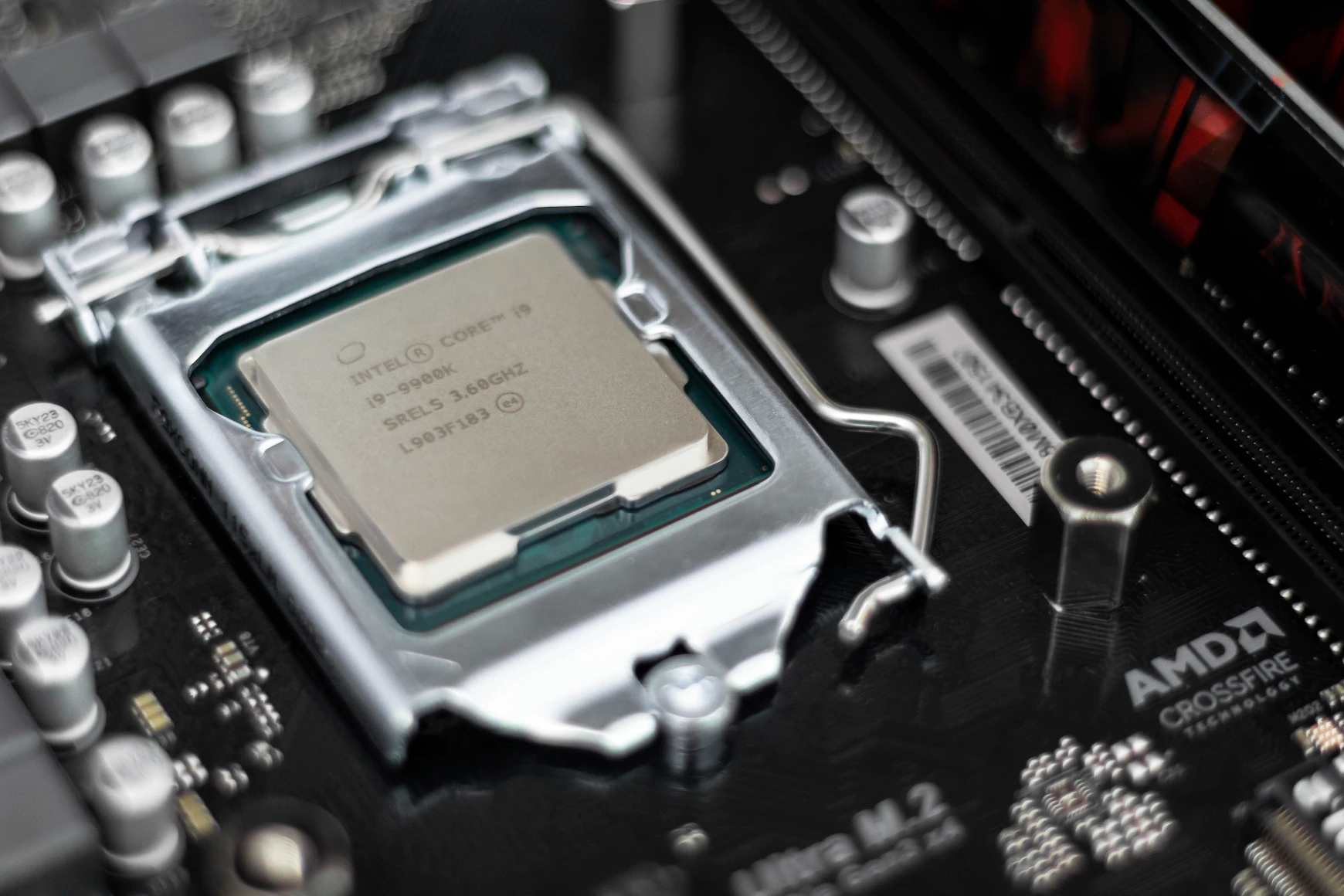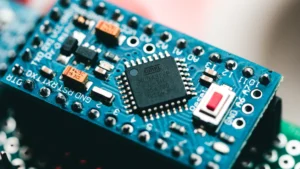The CPU, or Central Processing Unit, is the main component of a computer that is responsible for executing instructions and performing calculations. It acts as the “brain” of the computer, and it is the part of the device that performs most of the computational tasks.
The CPU is a crucial component of any computing system, and it plays a critical role in determining the performance and functionality of the computer. It is responsible for processing data, executing programs, and controlling the interaction between the computer and its various components. A good CPU will have a positive impact on system performance, including the speed and efficiency of the device.
This article will provide a comprehensive overview of the importance of the CPU in computing, including its structure, functions, and impact on system performance. We will also discuss the types of CPUs available, the significance of clock speed, cores, and threads, and the future of CPUs in computing. The goal of this article is to help you understand the critical role that the CPU plays in computing and how it affects the overall performance of your computer.
What is a CPU and How Does it Work?
Structure and Components of a CPU
The CPU, or Central Processing Unit, is the main component of a computer responsible for executing instructions and processing data. It is composed of several parts, including the arithmetic logic unit (ALU), the control unit (CU), and the registers. The ALU performs arithmetic and logical operations, while the CU manages the flow of data and instructions in the CPU. The registers store data temporarily while it is being processed.
Types of CPUs
There are two main types of CPUs, namely, Intel and AMD. Both types of CPUs have different specifications and offer different levels of performance and efficiency. Intel CPUs are widely used in personal computers, while AMD CPUs are used in both personal computers and servers.
Functioning of a CPU
The CPU works by fetching instructions from memory, decoding them, and executing them. The CPU retrieves the instruction, decodes it to determine the operation it should perform, and then carries out the operation. This process is repeated thousands of times per second, allowing the computer to perform complex tasks and calculations quickly.
Explanation of Clock Speed, Cores, and Threads
Clock speed refers to the number of clock cycles the CPU can complete in one second. It is measured in GHz (gigahertz). The higher the clock speed, the faster the CPU can process instructions.
Cores refer to the number of physical processing units within the CPU. A core can process multiple instructions simultaneously, allowing for improved performance and efficiency.
Threads refer to the number of threads of execution the CPU can handle at one time. A thread is a sequence of instructions that can be executed independently of other threads. The more threads a CPU can handle, the more efficiently it can perform multiple tasks at once.
Importance of a CPU in Computing
1. Central Processing Unit as the Brain of a Computer
The CPU is often referred to as the brain of the computer, as it is responsible for carrying out all of the instructions and performing all of the operations necessary for the computer to function. Without a CPU, a computer would not be able to process data or execute programs.
2. Processing of Data and Instructions
The CPU processes data and instructions from the memory and executes them, allowing the computer to perform a wide range of tasks, from running applications and games to displaying images and playing audio.
3. Execution of Programs
The CPU executes programs by following a set of instructions, which are stored in memory. These instructions tell the CPU what operations to perform and in what order. The CPU fetches the instructions, decodes them, and executes them, allowing the computer to perform complex tasks and calculations.
4. Interaction with Other Components
The CPU interacts with other components in the computer, including the memory, storage, and input/output devices, to carry out the necessary operations. The CPU communicates with these components by sending and receiving signals, allowing for seamless operation and efficient processing.
The Impact of CPU on System Performance
1. Clock Speed and Performance
Clock speed is an important factor that affects the performance of a CPU. The higher the clock speed, the faster the CPU can process instructions, leading to improved performance. However, clock speed is not the only factor that affects performance, as the number of cores and threads also plays a role.
2. The Importance of Cores and Threads
The number of cores and threads in a CPU is also an important factor that affects performance. The more cores and threads a CPU has, the more instructions it can process simultaneously, leading to improved performance and efficiency. This is especially important for tasks that require parallel processing, such as video editing or rendering.
3. Choosing the Right CPU for Your Needs
Choosing the right CPU for your needs involves considering several factors, including clock speed, number of cores and threads, and compatibility with your existing system components. It is important to choose a CPU that is powerful enough to handle the tasks you need it to perform, but also efficient enough to prevent CPU throttling.
4. The Future of CPUs and Impact on Computing
CPU technology continues to advance, with new generations of CPUs being introduced that offer increased performance, efficiency, and capabilities. This will have a significant impact on computing and the way we interact with technology in the future. As CPUs become more powerful, they will enable us to perform more complex tasks, store and process more data, and experience more immersive and interactive technology.
Conclusion
The CPU is a critical component of any computer, as it is responsible for carrying out all of the instructions and performing all of the operations necessary for the computer to function. The clock speed, number of cores, and threads all play a role in determining the performance of a CPU.
As CPU technology continues to advance, we can expect to see more powerful and efficient CPUs that will impact the way we use technology in the future. With the right CPU, it will be possible to perform even more complex tasks and experience more immersive and interactive technology.
The importance of CPUs in computing cannot be overstated. As technology continues to evolve, it is important to stay informed about the latest advancements in CPU technology and the impact they will have on the future of computing. Further research and education can help individuals make informed decisions about the right CPU for their needs, and ensure that they are making the most of their technology.
Frequently asked questions
Is CPU the most important?
The CPU is considered one of the most important components of a computer system as it performs most of the crucial tasks in a computer. It acts as the central control unit, interpreting and executing the instructions of computer programs. It processes data, performs arithmetic and logical operations, and manages the communication between different components of a computer. The speed and performance of a CPU directly affect the overall performance of a computer system. The faster the CPU, the faster it can execute the instructions, process data, and complete tasks.
Moreover, the number of cores and threads in a CPU also impacts its performance. A core is a physical processing unit within a CPU that performs computation, while a thread is a sequence of instructions that can run independently. The more cores and threads a CPU has, the more parallel processing it can perform, leading to improved performance for demanding applications such as video editing, gaming, and scientific simulations.
Does every computer need a CPU?
Every computer requires a CPU (Central Processing Unit) to function. A CPU acts as the “brain” of a computer, performing most of the essential processing tasks. It is responsible for executing program instructions, processing data, and managing the interaction between different computer components. Without a CPU, a computer system would not be able to perform any meaningful tasks.
A CPU is the main component that determines the performance of a computer. It determines the speed at which tasks are performed, the amount of data that can be processed, and the overall responsiveness of a computer. The CPU is also responsible for controlling and coordinating the activities of other computer components, such as memory, storage, and input/output devices.
In recent years, the CPU has become even more important as computing demands have increased. Applications such as video editing, gaming, and scientific simulations require high-performance CPUs to meet their computational needs. The rise of cloud computing and the Internet of Things (IoT) has also made the CPU even more essential, as these technologies require large amounts of computational power to function.
How much CPU do you need?
The amount of CPU (Central Processing Unit) required depends on the tasks you want to perform on your computer. For basic tasks like web browsing, word processing and light video playback, a dual-core CPU is sufficient. For more demanding tasks such as gaming, video editing, or 3D rendering, a quad-core or higher CPU is recommended.
For multi-tasking, it is better to have a high clock speed CPU, which measures the number of clock cycles a CPU can perform in a second. A higher clock speed can result in faster performance, but it is not the only factor that affects a CPU’s performance. Other important factors include the number of cores, the architecture of the CPU, and the efficiency of the cooling system.
When choosing a CPU, it is also important to consider the compatibility with other components such as the motherboard and the power supply. High-end CPUs may require a powerful power supply and a compatible motherboard to function properly. Additionally, the cost of a CPU is also a factor to consider.
Why is a CPU important?
A CPU (Central Processing Unit) is considered the “brain” of a computer as it performs most of the essential processing tasks in a computer. It is responsible for executing program instructions, processing data, and managing the interaction between different computer components. The CPU is the main component that determines a computer’s overall performance, and it’s essential to choose the right CPU to meet the computing needs of an individual or an organization. This article will discuss the importance of a CPU in computing, including its structure, types, and functions, and the impact of a CPU on system performance.



![How to Stop CPU Throttling [Ultimate Guide] How to Stop CPU Throttling [Ultimate Guide]](https://thebestcpu.com/wp-content/uploads/2023/02/photo-1555617766-c94804975da3-300x200.webp)
![CPU Water Cooling: Is it Good? [Ultimate Guide] CPU Water Cooling: Is it Good? [Ultimate Guide]](https://thebestcpu.com/wp-content/uploads/2023/02/photo-1670751781907-d59be4c3e208-300x200.webp)